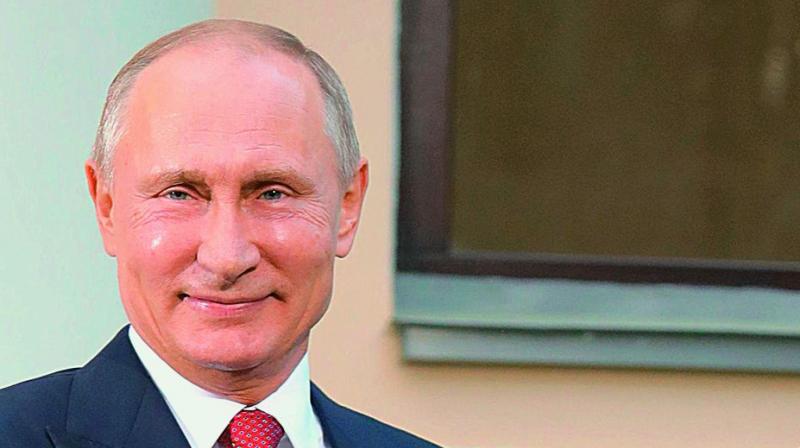Russians can't match US skill in subverting democracy

Pakistan is just one among dozens of countries across most continents gearing up for elections this year. In some cases — e.g. the Russian and Egyptian presidential elections in March, for instance — the results are more or less a foregone conclusion. In others, not least the US mid-terms in November, there is cause for suspense.
In at least a few instances, the question of foreign interference is likely to arise, particularly in the wake of the continued fuss over the purported Russian role in facilitating Donald Trump’s triumph in November 2016. The grand jury, so to speak, is still out on that one.
In the US case, there is plenty of circumstantial evidence that senior figures in the Trump campaign were keen to get their hands on any “dirt” Russian sources might be willing to dish out on Hillary Clinton. It remains unclear whether anything substantial turn-ed up, aside from the Democratic National Committee emails released through Wiki-Leaks. The extent to which propaganda via social media may have swung voting intentions is almost impossible to determine. It has been alleged that Vladimir Putin was personally overseeing the effort to empower Trump. If so, one can only wonder whether he publicly followed the Russian tradition of plunging into freezing water at the height of winter as a form of penance associated with buyer’s remorse.
It’s more likely, though, that he just wanted to demonstrate his physical prowess to Russian voters. At any rate, even if the Robert Mueller investigation is able to come up with evidence of collusion strong enough to support an indictment or three, it won’t change the fact that the responsibility for electing Trump falls squarely on American shoulders. What’s more likely to be laid bare by the special inquiry is a money-laundering trail that passes through Deutsche Bank, possibly involving many Russian oligarchs.
Russian interference has also been cited in the context of a number of European elections, invariably in support of far-right nationalist forces, many of which do not hesitate to heap praise on the 21st-century czar. To the extent that this is true, it is reprehensible.
However, although propaganda tools as well as means of funnelling funds to favourites have changed; in historical terms Russia can hardly compete with the US when it comes to subverting democracy in far-off nations. In fact, one of the more blatant efforts at collusion involved Russia itself, when in the mid-1990s it looked as though Boris Yeltsin might not prevail against his Communist Party rival. Bill Clinton’s administration secretly chucked plenty of PR expertise and other resources into the presidential election, and the strategy paid off.
This was merely one more reflection of a trend that dated back some 50 years by then, with the first instance recorded not long after a victory, purportedly for freedom, had been won against Nazi Germany. In post-fascist Italy in 1948, when it appeared that the Communists, who had been prominent in the resistance against Benito Mussolini, might win the vote, the CIA intervened, surreptitiously but decisively. It was the first of many such interventions in various countries. The Soviet Union may not have been innocent either, but its propaganda was usually clumsy, and it never claimed to be a beacon of democracy.
Worse, when elections in key countries did not go Washington’s way, it had few qualms about undermining the elected administrations or backing their overthrow. The most obvious example of such bloody-mindedness is the coup against Salvador Allende in Chile in 1973, but there have been believable insinuations of a US role in other significant instances of regime change later during the same decade.
In Trump’s case, at least one instance of contact with the Russian ambassador involved an attempt to ascertain, on behalf of the Netanyahu regime, whether Moscow might be inclined to step in after the Obama administration refused to veto a mild Security Council reprimand for Israel. It would be a welcome surprise if this particular instance of collusion received the attention it deserves from the Mueller inquiry.
By arrangement with Dawn

